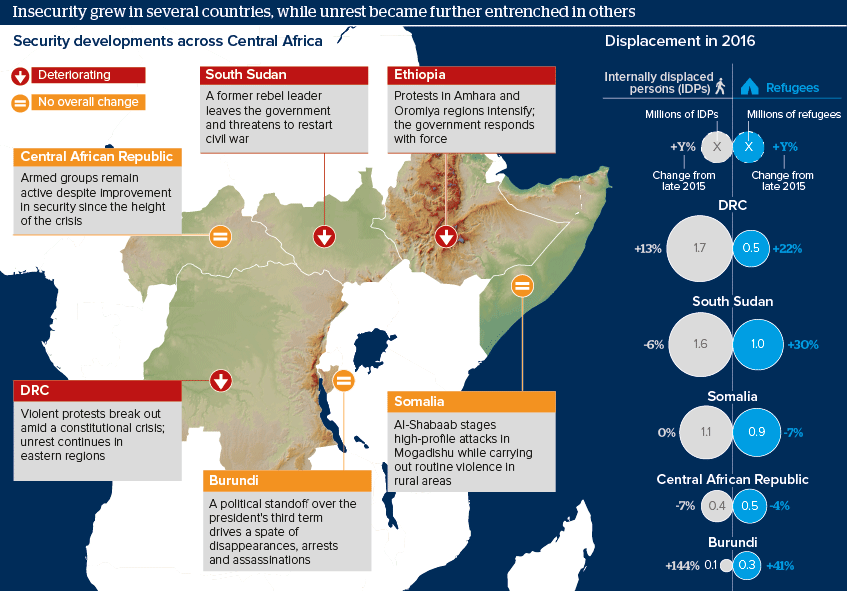Insecurity plagues Africa's equatorial belt
From the Atlantic to the Indian Ocean, violence permeated politics in 2016
Source: US Agency for International Development, Directorate-General for European Civil Protection and Humanitarian Aid Operations, Office of the UN High Commissioner for Refugees, International Organisation for Migration
Outlook
Political standoffs in the Democratic Republic of the Congo and South Sudan fuelled escalating violence in recent months. Political resolutions are unlikely in the near future, raising the risk of protracted violence and deteriorating political stability.
Al-Shabaab's continued operations and other armed clashes in Somalia will perpetuate insecurity despite fragile political gains. The elected government in the Central African Republic lacks the resources to establish full territorial control.
Ethiopia's security apparatus may be able to staunch protests for a time, but a lasting resolution will depend on political reform. The Burundian government's hard line against the opposition may perpetuate the simmering tensions and spur further violent incidents.
Impacts
- Humanitarian needs will likely grow, but these emergencies will compete with other large-scale crises (Yemen and Syria) for donor funds.
- Regional protests in Ethiopia pose less risk to investments than potential widespread violence in DRC and South Sudan.
- Embattled UN peacekeeping missions, the African Union and the International Criminal Court will face tests of their relevance and efficacy.
See also
- Peacekeeping concerns risk instability in East Africa - Nov 23, 2016
- East Africa's humanitarian needs may increase - Aug 15, 2016
- More graphic analysis
